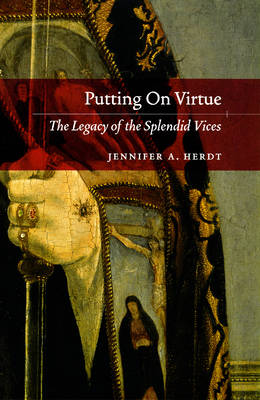
- Afhalen na 1 uur in een winkel met voorraad
- Gratis thuislevering in België vanaf € 30
- Ruim aanbod met 7 miljoen producten
- Afhalen na 1 uur in een winkel met voorraad
- Gratis thuislevering in België vanaf € 30
- Ruim aanbod met 7 miljoen producten
Zoeken
€ 72,95
+ 145 punten
Uitvoering
Omschrijving
Augustine famously claimed that the virtues of pagan Rome were nothing more than splendid vices. This critique reinvented itself as a suspicion of acquired virtue as such, and true Christian virtue has, ever since, been set against a false, hypocritical virtue alleged merely to conceal pride. Putting On Virtue reveals how a distrust of learned and habituated virtue shaped both early modern Christian moral reflection and secular forms of ethical thought. Jennifer Herdt develops her claims through an argument of broad historical sweep, which brings together the Aristotelian tradition as taken up by Thomas Aquinas with the early modern thinkers who shaped modern liberalism. In chapters on Luther, Bunyan, the Jansenists, Mandeville, Hume, Rousseau, and Kant, she argues that efforts to make a radical distinction between true Christian virtue and its tainted imitations actually created an autonomous natural ethics separate from Christianity. This secular value system valorized pride and authenticity, while rendering graced human agency less meaningful. Ultimately, Putting On Virtue traces a path from suspicion of virtue to its secular inversion, from confession of dependence to assertion of independence.
Specificaties
Betrokkenen
- Auteur(s):
- Uitgeverij:
Inhoud
- Aantal bladzijden:
- 472
- Taal:
- Engels
Eigenschappen
- Productcode (EAN):
- 9780226327242
- Verschijningsdatum:
- 1/11/2008
- Uitvoering:
- Hardcover
- Formaat:
- Genaaid
- Afmetingen:
- 160 mm x 234 mm
- Gewicht:
- 748 g

Alleen bij Standaard Boekhandel
+ 145 punten op je klantenkaart van Standaard Boekhandel
Beoordelingen
We publiceren alleen reviews die voldoen aan de voorwaarden voor reviews. Bekijk onze voorwaarden voor reviews.











